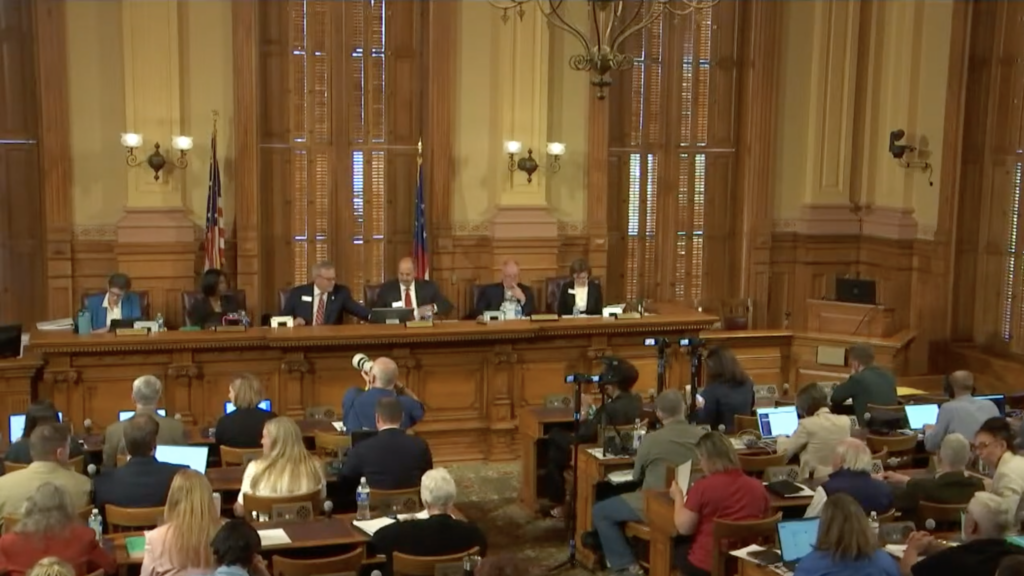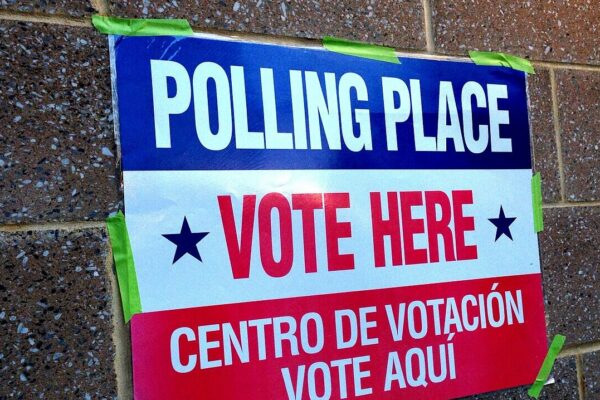Memo: Georgia Secretary Of State Won’t Train Counties To Comply With Election Board’s Rule Yet

After trying to block the Georgia State Election Board (SEB) from ensuring precincts match physical ballot counts with machine counts, Secretary of State Brad Raffensperger’s office declined to provide training on the SEB’s rule until a court rules on the matter.
Blake Evans, the election director for the secretary of state, sent guidance to county election officials indicating the state will not bother providing “additional training … until after any court decisions are made,” according to a document obtained by The Federalist.
“Our office is continuing to review recent rule amendments voted on by the State Election Board (SEB) at their meetings on September 20th and 23rd, which are not yet effective. One of those amendments would change SEB Rule 183-1-12-.12(a)(5) to require hand counting of paper ballots after polls close on election night,” the guidance states.
“As you may be aware, there are pending court challenges to the legality of these rules, and hearings have been scheduled in these cases for this week,” the guidance continues. “The Attorney General’s office wrote in a memo to the SEB that the proposed rule amendment was ‘not tethered to any statute — and [is] therefore, likely the precise type of impermissible legislation that agencies cannot do.’”
“Because the SEB rules are tied up in litigation, and because poll worker training in many counties has already started and there is limited time remaining for additional training, the SOS Elections Division does not intend to provide additional training on SEB rules until after any court decisions are made.”
The Democratic National Committee and Georgia’s Democrat Party sued the SEB in September over the approval of Rule 183-1-12-.12(a)(5). The rule states that “the poll manager and two witnesses” shall, after removing the “paper ballots from each ballot box, record the date and time that the ballot box was emptied and present to three sworn precinct poll officers to independently count the total number of ballots removed from the scanner, sorting into stacks of 50 ballots, continuing until all of the ballots have been counted separately by each of the three poll officers.”
If the three poll officers find that “the numbers recorded on the precinct poll pads, ballot marking devices [BMDs] and scanner recap forms do not reconcile with the hand count ballot totals, the poll manager shall immediately determine the reason for the inconsistency; correct the inconsistency, if possible; and fully document the inconsistency or problem along with any corrective measures taken.”
It’s a process known as reconciliation.
The DNC and the Democrat Party of Georgia’s suit argued, among other things, that the SEB lacks the authority to implement such change.
But state statute already stipulates a reconciliation process that outlines how each election “superintendent … shall compare the registration figure with the certificates returned by the poll officers showing the number of persons who voted in each precinct or the number of ballots cast.”
SEB member Janelle King explained during a recent SEB meeting that several counties already use hand counting to comply with state reconciliation statutes and that approving the new rule would simply create uniform guidance across the state, which she argues is “part of” the SEB’s role.
“I just want to point out that according to our Georgia code, the role of the [SEB], part of our role, is to ‘promulgate rules and regulations to define uniform and nondiscriminatory standards,’” King said, purportedly reading from the state election code. “As we stated several times, having some counties counting by hand and some counties not, does not establish uniformity. This rule will do that, and we do have the ability to do that.”
The DNC and Democrat Party of Georgia also argued that the SEB adopted the rule too close to an election.
This argument is similar to the assertion made by the secretary of state’s General Counsel Charlene McGowan. McGowan sent a letter to SEB members contending that the rule changes were being made too close to Election Day, according to 11 Alive. The state’s attorney general also sent a letter to SEB members arguing that the “proposed rules are not tethered to any statute — and are, therefore, likely the precise type of impermissible legislation, that agencies cannot do,” according to 11 Alive.
Despite the challenges, King said in a statement to The Federalist, “Fortunately, some election offices have already started their training and are fully prepared to move forward.”
“I don’t understand why there are complaints about the rule change being too close to the election while simultaneously delaying training,” King said. “This seems more adversarial than solution-focused.”
For more election news and updates, visit electionbriefing.com.
Brianna Lyman is an elections correspondent at The Federalist. Brianna graduated from Fordham University with a degree in International Political Economy. Her work has been featured on Newsmax, Fox News, Fox Business and RealClearPolitics. Follow Brianna on X: @briannalyman2




